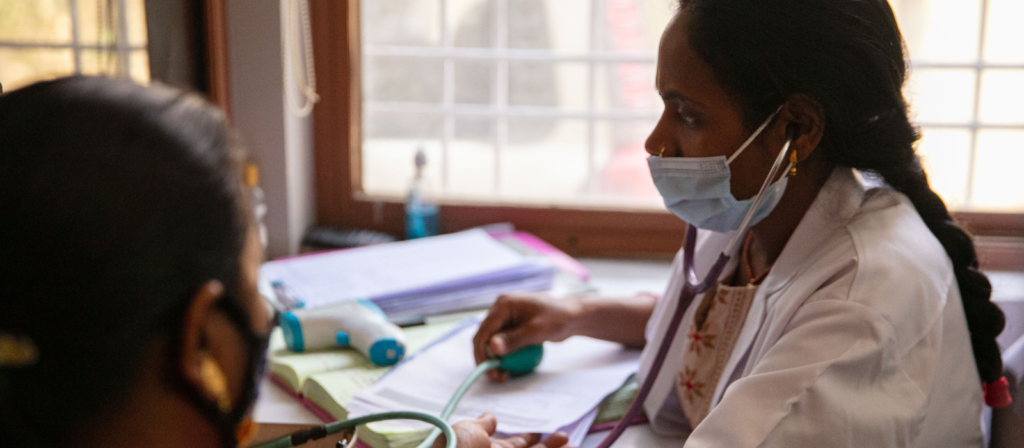By Matthieu Ricard on octobre 18th 2023
This text is an extract from Matthieu Ricard’s book Altruism, available here.

I was talking recently with a nurse; like most of her colleagues, she is constantly confronted with the sufferings and problems of the patients she cares for. She told me that in the new training that health care personnel undergo, accent is placed on the “necessity of keeping an emotional distance from the patients,” who are now often called “clients,”to avoid the infamous burnout which affects so many health care workers. This woman, who was very warm and whose mere presence is reassuring, then confided to me: “It’s strange, I feel as if I’m gaining something when I take care of people who are suffering, but when I speak of this ‘gain’ to my colleagues, I feel a little guilty about feeling something positive.” I briefly described to her the differences that seem to exist between compassion and empathic distress. This difference agreed with her experience and proved that she had no reason to feel guilty. Contrary to empathic distress, love and compassion are positive states of mind, which reinforce one’s inner ability to confront others’ suffering and to care better for them. If a child is hospitalized, the presence of a loving mother at his side who holds his hand and comforts him with tender words will no doubt do him more good than the anxiety of a mother overwhelmed with empathic distress who, unable to bear the sight of her sick child, paces back and forth in the hallway. Reassured by my explanations, my nurse friend told me that despite qualms she occasionally had, this point of view agreed with her experience as a caregiver. Empathy is indeed needed to trigger the arising of compassion, but the space of that compassion should be vast enough so that empathy does not turn into uncontainable distress.
In light of this preliminary research, it would seem logical for those whose profession consists of attending to suffering people on a daily basis to be trained in altruistic love and compassion. Such a training would also help close relatives (parents, children, spouses) who take care of sick or handicapped people. Altruistic love creates in us a positive space that serves as an antidote to empathic distress, and prevents affective resonance from proliferating until it becomes paralyzing and engenders the emotional exhaustion characteristic of burnout. Without the support of love and compassion, empathy left to itself is like an electric pump through which no water circulates: it will quickly overheat and burn. So empathy should take place within the much vaster space of altruistic love. It is also important to consider the cognitive aspect of compassion, in other words understanding the different levels of suffering and its manifest or latent causes. We will be able thus to place ourselves in the service of others by helping them effectively while still preserving our inner strength, our kindness, and our inner peace. As the French psychologist Christophe André writes, “We need the gentleness and the strength of compassion. The more lucid we are about the world, the more we accept seeing it as it really is, the easier it is to accept that we cannot face all the suffering that is encountered in the course of our lives unless we have this strength and this gentleness.
Founded by Matthieu Ricard in 2000, Karuna-Shechen acts and advocates for a more altruistic world, firmly believing that altruism is a key to building the world of tomorrow. The organization offers concrete solutions to the challenges of our century. We recognize that access to quality healthcare is a fundamental right. Karuna works to eliminate the barriers that prevent many people from accessing it. Within the clinics, each patient receives dedicated attention and care tailored to their specific needs.